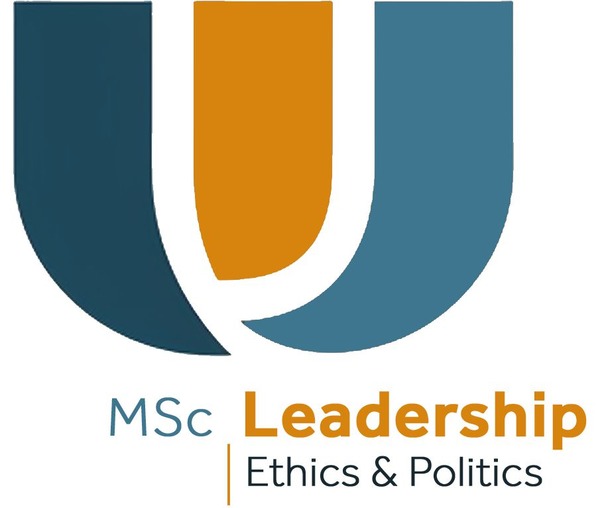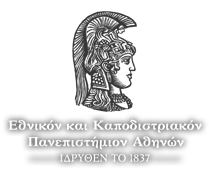Gender Equality and Difference: Integration and Inclusion (LEPE5)
Ευάγγελος Πρωτοπαπαδάκης
Since the late 19th century, within the framework of influences from positivism and scientism, as well as the teachings of collective consciousness, the issue of gender identities and conflicts has been prominently highlighted. Phenomena of dominance, expansion, and hierarchy of gender roles are brought into focus and become subjects of intense debate. After the Second World War, we witness the emergence of a feminist epistemology that seeks to reposition the issue of biological identity and cultural action, becoming increasingly relevant. The entire discussion evolves and focuses on issues of inclusion, recognition, difference, and alienation of individuals. The expansion of the gender identity issue leads to new problematic aspects regarding determinative methods and categorizations of gender activity. Phenomena problematic for contemporary leadership such as war and arbitration will be examined here in relation to the gender issue.
LessSince the late 19th century, within the framework of influences from positivism and scientism, as well as the teachings of collective consciousness, the issue of gender identities and conflicts has been prominently highlighted. Phenomena of dominance, expansion, and hierarchy of gender roles are brought into focus and become subjects of intense debate. After the Second World War, we witness the emergence of a feminist epistemology that seeks to reposition the issue of biological identity and cultural action, becoming increasingly relevant. The entire discussion evolves and focuses on issues of inclusion, recognition, difference, and alienation of individuals. The expansion of the gender identity issue leads to new problematic aspects regarding determinative methods and categorizations of gender activity. Phenomena problematic for contemporary leadership such as war and arbitration will be examined here in relation to the gender issue.
Since the late 19th century, within the framework of influences from positivism and scientism, as well as the teachings of collective consciousness, the issue of gender identities and conflicts has been prominently highlighted. Phenomena of dominance, expansion, and hierarchy of gender roles are brought into focus and become subjects of intense debate. After the Second World War, we witness the emergence of a feminist epistemology that seeks to reposition the issue of biological identity and cultural action, becoming increasingly relevant. The entire discussion evolves and focuses on issues of inclusion, recognition, difference, and alienation of individuals. The expansion of the gender identity issue leads to new problematic aspects regarding determinative methods and categorizations of gender activity. Phenomena problematic for contemporary leadership such as war and arbitration will be examined here in relation to the gender issue.
Syllabus
Course Syllabus
I. Ancient thought and gender.
II. The issue of gender in various Middle Ages.
III. Gender at the emergence of modernity.
IV. Gender and the formation of the collective Being.
V. Gender roles and the drama of recognition (Hegel).
VI. Aspects of the alienation of gender roles.
VII. Gender roles and virtue ethics.
VIII. Gender roles and ethical considerations.
IX. Leadership and gender identities.
X. Leadership groups and gender identification.
XI. Arbitration of gender differences.
XII. War and gender.
XIII. Post-modernity, leadership critique, and gender.
Course Objectives/Goals
• Familiarization with the concept of gender, gender difference, and gender roles.
• Study of the development of a philosophy and ethics of gender differences and gender roles.
• Study of the development of feminist epistemology.
• Understanding of gender roles in post-modernism.
• Recognition of the issue of biological identity.
• Gender roles and history: understanding the issue from the perspective of the philosophy of history.
• Focus on the issue of gender roles in relation to the dialectics of recognition and the alienation of the individual from others and oneself.
• Study of the relationship between gender roles and technology and modern means of communication.
Instructional Methods
This course employs a dynamic blend of instructional methods to ensure a comprehensive learning experience. With a focus on engagement and flexibility, the instructional approach comprises 75% face-to-face teaching, fostering direct interaction between instructors and students in a traditional classroom setting. Additionally, 25% of the course involves distant teaching, which can be delivered either synchronously or asynchronously. This remote component allows students to access course materials, participate in discussions, and engage with learning activities at their own pace, leveraging online platforms and resources. By combining face-to-face interaction with remote learning opportunities, the course aims to cater to diverse learning styles and preferences, facilitating deeper understanding and collaboration among students while accommodating individual schedules and needs.
Assessment Methods
- 20%: Participation
- 20%: Oral presentation
- 60%: Written assignment
Prerequisites/Prior Knowledge
This module has no prerequisites in the curriculum or prior knowledge requirements.
Instructors
Instructors for the course will be announced shortly.
Bibliography
- Gorgias, Encomium of Helen
- Plato, Symposium
- Aristophanes, Lysistrata
- Xenophon, Oeconomicus
- Simone de Beauvoir, Le Deuxième Sexe (1949) (English: The Second Sex), Paris, Gallimard, 1949.
- Kate Millett, Sexual Politics, New York: Columbia University Press, 2016 (1970).
- Bock, Gisela, and James, Susan (eds.), Beyond Equality and Difference. New York: Routledge, 1992.
- Cornell, Drucilla, and Benhabib, Seyla (eds.), Feminism as Critique. Minneapolis: University of Minnesota Press, 1987.
- Nicholson, Linda J. (ed.), Feminism/Postmodernism. New York: Routledge, 1990.
- Crosby, Donald A. (ed.), Religious Experience and Ecological Responsibility. New York: Lang, 1996.
- Anderson, Elizabeth, 1995a, “Feminist Epistemology: An Interpretation and Defense,” Hypatia, 10: 50–84.
- Harding, Sandra, 1986, The Science Question in Feminism, Ithaca: Cornell University Press.
- Oxford Handbook of Gender, War and the Western World since 1600, Editors: Karen Hagemann, Stefan Dudink and Sonya O. Rose, New York: Oxford University Press, 2020.
- Chinkin, Christine, and Mary Kaldor. "Gender and New Wars." Journal of International Affairs 67, no. 1 (2013): 167-187.
- Kaufman, Joyce P., and Kristen P. Williams. Women at War, Women Building Peace: Challenging Gender Norms. Boulder: Lynne Rienner, 2013.
I. Ancient thought and gender.
II. The issue of gender in various Middle Ages.
III. Gender at the emergence of modernity.
IV. Gender and the formation of the collective Being.
V. Gender roles and the drama of recognition (Hegel).
VI. Aspects of the alienation of gender roles.
VII. Gender roles and virtue ethics.
VIII. Gender roles and ethical considerations.
IX. Leadership and gender identities.
X. Leadership groups and gender identification.
XI. Arbitration of gender differences.
XII. War and gender.
XIII. Post-modernity, leadership critique, and gender.
• Familiarization with the concept of gender, gender difference, and gender roles.
• Study of the development of a philosophy and ethics of gender differences and gender roles.
• Study of the development of feminist epistemology.
• Understanding of gender roles in post-modernism.
• Recognition of the issue of biological identity.
• Gender roles and history: understanding the issue from the perspective of the philosophy of history.
• Focus on the issue of gender roles in relation to the dialectics of recognition and the alienation of the individual from others and oneself.
• Study of the relationship between gender roles and technology and modern means of communication.
This course employs a dynamic blend of instructional methods to ensure a comprehensive learning experience. With a focus on engagement and flexibility, the instructional approach comprises 75% face-to-face teaching, fostering direct interaction between instructors and students in a traditional classroom setting. Additionally, 25% of the course involves distant teaching, which can be delivered either synchronously or asynchronously. This remote component allows students to access course materials, participate in discussions, and engage with learning activities at their own pace, leveraging online platforms and resources. By combining face-to-face interaction with remote learning opportunities, the course aims to cater to diverse learning styles and preferences, facilitating deeper understanding and collaboration among students while accommodating individual schedules and needs.
- 20%: Participation
- 20%: Oral presentation
- 60%: Written assignment
This module has no prerequisites in the curriculum or prior knowledge requirements.
Instructors for the course will be announced shortly.
- Gorgias, Encomium of Helen
- Plato, Symposium
- Aristophanes, Lysistrata
- Xenophon, Oeconomicus
- Simone de Beauvoir, Le Deuxième Sexe (1949) (English: The Second Sex), Paris, Gallimard, 1949.
- Kate Millett, Sexual Politics, New York: Columbia University Press, 2016 (1970).
- Bock, Gisela, and James, Susan (eds.), Beyond Equality and Difference. New York: Routledge, 1992.
- Cornell, Drucilla, and Benhabib, Seyla (eds.), Feminism as Critique. Minneapolis: University of Minnesota Press, 1987.
- Nicholson, Linda J. (ed.), Feminism/Postmodernism. New York: Routledge, 1990.
- Crosby, Donald A. (ed.), Religious Experience and Ecological Responsibility. New York: Lang, 1996.
- Anderson, Elizabeth, 1995a, “Feminist Epistemology: An Interpretation and Defense,” Hypatia, 10: 50–84.
- Harding, Sandra, 1986, The Science Question in Feminism, Ithaca: Cornell University Press.
- Oxford Handbook of Gender, War and the Western World since 1600, Editors: Karen Hagemann, Stefan Dudink and Sonya O. Rose, New York: Oxford University Press, 2020.
- Chinkin, Christine, and Mary Kaldor. "Gender and New Wars." Journal of International Affairs 67, no. 1 (2013): 167-187.
- Kaufman, Joyce P., and Kristen P. Williams. Women at War, Women Building Peace: Challenging Gender Norms. Boulder: Lynne Rienner, 2013.
Calendar
Announcements
- - There are no announcements -

